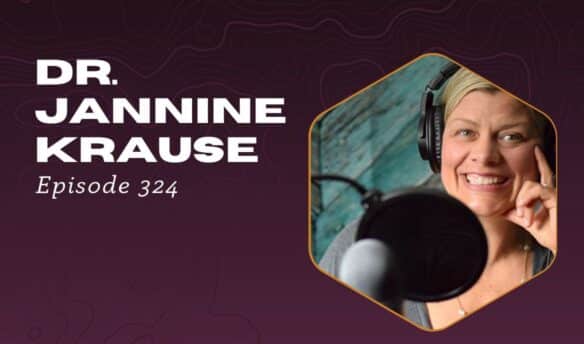Many of us actually eat more than we need. Our minds are convinced that we need more than we really do when we have vitamin deficiencies. It’s not just because of the “supersized” world we live in, it’s also because our guts and cellular metabolisms are trashed. Your body might be crying out for something in particular which prompts you to eat more.
It is likely that you are deficient in some key nutrients if you suffer from the following symptoms:
– Fatigue. You may not have the energy of a teenager, but you should still be able to have energy and not crash out when you come home.
– Migraines
– Numbness and tingling in the hands, feet, arms, and legs.
– Inability to lose weight. A lot of people are eating clean, exercising and doing all the right things but still can’t lose weight.
– Intense cravings
A good portion of these symptoms can be due to muscle wasting. If you are eating paleo, eating a lot of protein, or follow a low-carb diet, you may still suffer from muscle wasting. Along with muscle wasting, I also commonly see deficiencies in vitamin B1/thiamine, B2/Riboflavin, B3/niacin, B6, and B12 as well as other amino acid deficiencies. Today I want to break down what is happening in the body to cause these common problems.
There are seven main reasons for having vitamin deficiencies despite eating healthy.
#1 NOT ENOUGH HYDROCHLORIC ACID
Hydrochloric acid is the stomach acid that helps in breaking down food. We have been brainwashed by conventional medicine to believe that if we have acid reflux we need medication to block the acid. Most of the time the opposite is true, and we need to produce more acid. When we are stressed we can produce more acid, but we can also shut it off. The longer food sits in your stomach, the more that the sphincter between the stomach and the esophagus opens up. This results in acid going up into the esophagus which causes heartburn.
The medications that block acid production also decrease your ability to absorb vitamin B12. If you are using any kind of acid reflux medications, you’re going to have some difficulties breaking down your food.
Coffee, also blocks vitamin and nutrient absorption, which can lead to multiple vitamin deficiencies.
#2: DECREASE IN PANCREATIC ENZYMES
Pancreatic enzymes are produced in your pancreas. Lipase, amylase, and peptidase are released into your small intestine and break down proteins. If you’re not producing enough enzymes, you’re going to have issues with breaking down your food to get the B vitamins into your system. If you aren’t making enough hydrochloric acid, it’s also going to make it really hard for your peptidases to work properly in breaking down food.
Similarly, if you do not chew your food, you are going to have trouble triggering your enzymes to be released.
#3: INSUFFICIENT GUT BUGS
Probiotics are one of the things I recommend everyone rotate in supplementation form throughout the year. Probiotics help us absorb B vitamins as well as fat soluble vitamins A, D, E and K.
I’ve noticed in my practice that some people don’t feel good with B vitamins. You need good gut bugs to absorb vitamins! So, if you don’t have enough good gut bugs and you’re taking a vitamin, it is likely you’re not absorbing them. You’re also making yourself sick because you get a whole bunch of B vitamins and nowhere for them to go.
#4 EATING TOO MANY GRAINS AND PROCESSED CARBS
Most of us are not cooking our grains properly and we are also eating too much of them. B vitamins are highly concentrated in whole grains. You might notice that you don’t feel well after eating whole grains. A lot of times they sit and ferment in our stomachs and we can’t break them down like we should. If you didn’t pressure cook, or sprout them they are really hard to break down because of the lectins they contain.
I can’t stress enough how important it is to cook these foods properly and then eat them without overdoing it. This means a maximum of one cup of beans or whole grains as a serving.
#5: EXCESS CARBOHYDRATES
Another common issue that I see in terms of being overfed and undernourished is that a lot of us crave carbs. It could be because we have yeast overgrowth in the gut. It could be because of blood sugar imbalance.
If we’re stressed, we’re going to be producing more glucose because our primitive brain thinks that we need to run away from danger. The glucose in the cells produces energy. Unfortunately, our insulin receptors get tired from the overload of insulin and glucose, so they just let the glucose stay high in the body. We then store the excess carbs as fat.
You might be extremely stressed and only eat an apple a day in terms of a carb, but your body is going to store every bit of that.
The problem is that if we’re not getting the glucose into the cells for energy, the body tells the brain that we have no energy. The body will then start to break down our muscles even though we have had enough protein and carbs.
#6: YOUR GUT LINING MIGHT BE IRRITATED
Our bodies don’t know how to process genetically modified foods, pesticides, artificial colors, or dyes. On top of this, the gut can be irritated from food sensitivities that you already have. I recommend getting food sensitivity testing, especially if you’re having difficulty losing weight, because it’s important to know what irritates you. Medications and stress are also very hard on the gut. When the gut becomes irritated, it is very difficult for the body to absorb nutrients.
#7: EXCESS ALCOHOL CONSUMPTION
Excess alcohol consumption depletes your B vitamins. This is why you feel terrible after drinking too much alcohol. Alcohol acts as a diuretic and flushes out all of your B vitamins.
WHY B VITAMINS ARE IMPORTANT
The only B vitamin that we can store is vitamin B12. It can be stored in the liver for up to a few years. B12 is a big deal for the nervous system. It helps our nervous system to be energetic, but it also helps with relaxing our nervous system as well. Vitamin B12 also has a lot of other implications with detox.
B vitamins are so critical for helping you to produce energy. B vitamins have a lot of jobs.
In particular I’ve noticed a connection with hypothyroidism, metabolic syndrome, diabetes, and adrenal gland imbalances. Your thyroid takes care of a lot of your metabolism in addition to your adrenal glands. These are huge issues that lead to weight gain, increased inability to process glucose, and increased body fat.
These problems are consistently associated with vitamin B deficiencies, along with muscle wasting and vitamin D deficiency.
OVERFED AND UNDERNOURISHED WITH VITAMIN DEFICIENCIES
B-complexes are not a one-size-fits-all supplement. You need to know where your levels are at and then dial it in from there. If you suffer from the symptoms above and think that you could have a vitamin deficiency, I highly recommend getting your vitamin levels tested. Write down all of your symptoms, and then get the right amounts of the nutrients in your body and see how things go.
Many people wonder why I recommend supplementing instead of getting these nutrients through food. The reason is that it is likely you’re not absorbing the nutrients. You might not have enough good bugs to help you absorb them. There are just not enough B vitamins in our food to make a difference. The plants we eat are stressed just as much as we are stressed in our own environments, and it just doesn’t happen.
IN CONCLUSION
I highly recommend you test before you go out and get a B-complex. I don’t know how many times I’ve given people B-complexes over my years of practice and my patients don’t feel well when they take it. This is because they don’t have enough probiotics, and the dosage isn’t dialed in. A lot of us are very sensitive to what dosage we need. Get tested, get a picture of where you’re at, and go from there.
This blog is a summary of my podcast on this same topic. Click here to listen to my podcast on being overfed and undernourished!
youtube





